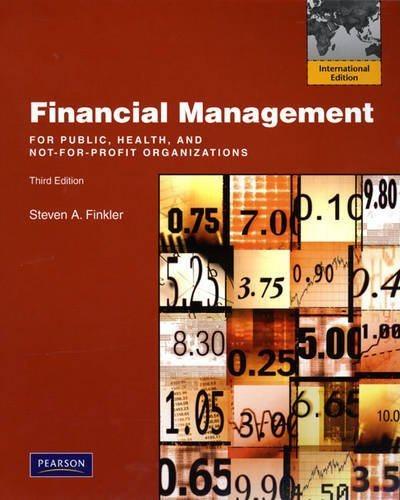

The financial data of Bob Smith, Inc. Bob is an existing bank customer. When the loan to Bob was originally made in 2016, the bank required Bob to increase the YE 2016 cash balance to at least $70,000 to qualify for the interest rate that the bank used for the original loan. This cash balance was required for the bank to make its target yield on the loan created. The Cash Flow Statement and Balance Sheet show an actual YE 2017 cash balance of less than $34,000. The team assignment requires participation in a team effort to complete the 2017 Cash Flow Statement. In addition, your team will also prepare "Common Sized Financial Statements" for the 2 years shown. In the Unit 1 Seminar, you discussed how to complete and use the 2017 Cash Flow Statement outcomes to explain how specific accounts influenced Bob's low cash balances; in other words, some reasons why Bob has no cash! The Common Sized Financial Statement (CC&R's) The Cash Flow Statement XYZ Bank told Bob to increase cash to $70,000 from 2016 to 2017. But cash increased from $16,566 in 2016 to just $33,411 in 2017, well short of $70,000. In this assignment, you will review six select changes in the Balance Sheet accounts, highlighted in yellow, to better understand how these individual account changes impact overall cash flows. 2017 and 2016 Comparativel 2017 2016 Items 1 to 6. Note the S value effect on Cash. Did the change in balances from one year to the next create (+) or 'use' (-) cash? Note the accounting or finance issue related to each of the six accounts reviewed. SS 33,411 S $ 16,566 S 260,205 S 318,768 S 423,819 S 352,740 71,079 (11.339) 41,251 S 758,686 S (40,700) 109,455 30.420 (119,735) 46,232 6,625 4,310 57.167 (113,534) (56.367) 176,102 119,735 ASSETS Cash Accounts Receivable Inventory Other current assets. Total Current Assets Plant Property and Equipment Goodwill and other assets Total Assets LIABILITIES AND EQUITY Accounts Payable Wages Payable Accrued income taxes Total Current Liabilities Long-Term Debt: Bank Notes Total Liabilities Total Common Equity Total Liabilities and Equity S S S 1.512,675 $1,403,220 382,145 S 412.565 S 2.653,506 S 2.533,771 378,236 S 332,004 S 7,862 14,487 S 21.125 S SS 413,848 $$ 356.681 S S 16,815 S S 679,981 S 793.515 S 1,093,829 S 1,150,196 S 1,559,677 S 1,383,575 S 2,653,506 $ 2,533.771 29.912 S 717,986 S S $ S Needed to foot the Cash Flow Statement all the way back to 2017 cash position. Net Income $3,155,848 212,366 Depreciation Dividends Paid Tax 2,966,412 225,700 The financial data of Bob Smith, Inc. Bob is an existing bank customer. When the loan to Bob was originally made in 2016, the bank required Bob to increase the YE 2016 cash balance to at least $70,000 to qualify for the interest rate that the bank used for the original loan. This cash balance was required for the bank to make its target yield on the loan created. The Cash Flow Statement and Balance Sheet show an actual YE 2017 cash balance of less than $34,000. The team assignment requires participation in a team effort to complete the 2017 Cash Flow Statement. In addition, your team will also prepare "Common Sized Financial Statements" for the 2 years shown. In the Unit 1 Seminar, you discussed how to complete and use the 2017 Cash Flow Statement outcomes to explain how specific accounts influenced Bob's low cash balances; in other words, some reasons why Bob has no cash! The Common Sized Financial Statement (CC&R's) The Cash Flow Statement XYZ Bank told Bob to increase cash to $70,000 from 2016 to 2017. But cash increased from $16,566 in 2016 to just $33,411 in 2017, well short of $70,000. In this assignment, you will review six select changes in the Balance Sheet accounts, highlighted in yellow, to better understand how these individual account changes impact overall cash flows. 2017 and 2016 Comparativel 2017 2016 Items 1 to 6. Note the S value effect on Cash. Did the change in balances from one year to the next create (+) or 'use' (-) cash? Note the accounting or finance issue related to each of the six accounts reviewed. SS 33,411 S $ 16,566 S 260,205 S 318,768 S 423,819 S 352,740 71,079 (11.339) 41,251 S 758,686 S (40,700) 109,455 30.420 (119,735) 46,232 6,625 4,310 57.167 (113,534) (56.367) 176,102 119,735 ASSETS Cash Accounts Receivable Inventory Other current assets. Total Current Assets Plant Property and Equipment Goodwill and other assets Total Assets LIABILITIES AND EQUITY Accounts Payable Wages Payable Accrued income taxes Total Current Liabilities Long-Term Debt: Bank Notes Total Liabilities Total Common Equity Total Liabilities and Equity S S S 1.512,675 $1,403,220 382,145 S 412.565 S 2.653,506 S 2.533,771 378,236 S 332,004 S 7,862 14,487 S 21.125 S SS 413,848 $$ 356.681 S S 16,815 S S 679,981 S 793.515 S 1,093,829 S 1,150,196 S 1,559,677 S 1,383,575 S 2,653,506 $ 2,533.771 29.912 S 717,986 S S $ S Needed to foot the Cash Flow Statement all the way back to 2017 cash position. Net Income $3,155,848 212,366 Depreciation Dividends Paid Tax 2,966,412 225,700








